#map fantasy
Explore tagged Tumblr posts
Text
2025 Book Review #11 – Deadhouse Gates by Steven Erikson

Introduction
One of my reading goals for 2025 is to get through the entire Malazan series at a rate of one a month or so (a commitment I made thinking Gardens of the Moon was representative and not the shortest in the set, but I digress). I went into Deadhouse Gates knowing almost nothing about the plot, but having had it talked up to me relentlessly as the point where the series hits its stride and gets really properly good. On one level I can absolutely see this – Erikson’s craft absolutely improved immensely between writing Gardens and Gates, and the characterization work is (on the whole) so much better the returning characters barely even seem like the same people. But – while it’s certainly an excellent book overall – it had some weaknesses and irritating ticks that had me wishing it was more like Gardens at several points.
The novel is set on the (sub-)continent of Seven Cities, a rich and ancient land lately conquered by the Malazan Empire, and now a restive project afflicted with moments prophecies and on the very edge of rebellion. With a decadent and incompetent governor uninterested in preparations or an organized response, the rebellion will see colonists and officials slaughtered wholesale across the land, with only the capital city of Aren itself able to hold out and await the relief of an imperial punitive expedition from the metropole. By cosmic coincidence, just as things come to a head the wastelands in the continents heart are overrun with shapeshifters of all kind – mages and skinchangers driven rabid with lust for power, seeking the mythical Path of Hands and it’s promise of Ascension and dominion over all their kind as a new god of beasts.
Amid the anarchy and bloodshed, the book follows five different points of view, each on their own variably ill-fated journey across the continent. By far the most detailed – and the one acting as a spine for the whole book – is the imperial historian Duiker, acting as witness and chronicler to the epic death-march of the 7th Army and the tens of thousands of refugees it protects across the continent, to hoped-for sanctuary beneath Aren’s walls. He’s a window rather than a protagonist, allowing the reader a close and personal view of the imperial general Coltaine and the 7th ‘s struggles and valour fighting the impossible odds arrayed against them.
Around the edges of that narrative (and, to my mind, in the main far more interesting) are our other points of view – a disgraced noble heiress-turned-penal-slave and her fellow escapees from a brutal imperial mine, an itinerant warrior walking the earth alongside his immortal friend in his quest for his lost memories, an outlawed legionary and assassin on his way back to the capital to kill the Empress for her crimes, and a similarly outlawed sapper and his ragtag band of travelers caught up in the plots and whims of gods they want absolutely nothing to do with.
Across just under a thousand pages, they give first-hand views of the rebellion’s initial stages and hints of what seem likely to be the actual plot of this whole ten-volume saga. And suffer. Mostly the suffering, really.
History and Worldbuilding
The very first thing anyone ever talks about with Malazan is the setting, and the real sense of depth and history that Erikson brings to it. Which is pretty much entirely deserved – this is a series where the setting and metaphysics came first, and the actual plot is at least kind of mostly just an excuse to explore and share it with people. Whether you find this interesting or charming or think it sounds like the most tedious reading experience imaginable is probably the first filter on whether you will actually enjoy this book (and the series as a whole) or not.
Now, that was always the promise of the series, but this is an area where Deadhouse Gates lives up to it far better than Gardens did. Erikson is, I���m told, an archaeologist and anthropologist by training and of but you can tell. Not always for the better with the anthropology bit, but the sheer enthusiasm with which the book regards broken shards of pottery and the impact of prehistoric tells on geography is really incredibly charming.
The book manages the effect a lot of fantasy tries for but very few succeed at – a sense of real deep, mythic history, of layers of ruined cities and dead gods whose memory still weighs upon and affects the world of the living and whose tragedies and dramas can be seen in the shape of the world wherever you might look. Very nearly every single one of the book’s most affecting passages and pieces of imagery are from a point of view exploring (or at least wondering through) some ancient ruin of a fallen or forgotten civilization, or else being haunted by their ghosts and the ways the present now rhymes with the past.
Far more than Gardens, Gates really does sell the feeling of a vast, wondrous, terrible world – full of unseen actors and only barely glimpsed conflicts that nonetheless shape the field of play our actual protagonists are acting upon. This is probably best expressed with the whole shapeshifter highlander that’s happening slightly off to the side of the plot for 90% of the book but still causes absolutely no end of problems for all the most interacting characters, as well as the sheer number of bizarre and near-lethal encounters with strange and ancient creatures the different traveling parties have by apparently random chance.
The less commendable expression of this is the sheer number of dei (and diaboli) ex machina Erikson keeps throwing into the plot whenever he’s not quite sure where to go or how to get a specific beat he wants to. The sudden appearance of a never-before-mentioned magical courier company crashing through dimensions to give Coltaine and (separately) Fiddler’s party exactly the resupply they needed to lift their spirits on behalf of interested parties on a literal different continent who had apparently somehow been following the drama of this remote death march with baited breath very nearly made me throw the book down in exasperation (and it’s hardly unique here).
Nuance and Characterization
All that said, by far the biggest improvement between Gardens and Gates is the quality of character-writing. Not necessarily in terms of giving distinct internal monologues (there are more than a few passages of Kalam’s narration you could put in Duiker’s mouth and no one one would blink), but the arcs and internal conflicts of every point of view character are far, far better written and more compelling than in the previous installment (not least because the book is far less likely to outright explain what that arc or internal conflict is in pseudo-objective monologue). Most (with a few very notable exceptions I’ll get to later) of the major supporting characters are similarly improved, seeming far more like people and less like the plot mechanisms or broad fantasy archetypes a decent chunk of Gardens secondary cast tended to default to.
The love and quality are admittedly a bit unevenly distributed, though. Felisin is by far the most psychologically interesting and nuanced character we spend any time in the head of – basically entirely because of her complete and total lack of self-knowledge as she tries (badly) to cope with all the horrible, life-ruining trauma. The fact that her sections lacked any sort of moral authority figure – there’s no character whose ever signposted as being uniquely enlightened or perfectly informed or even just usually right, everyone is a massive asshole in one way or another – too.
Though if Felisin’s is the best narrative running through the book, Mappo and Icorium get an easy second place. Again, in large part off the strength of their characterization – their relationship is really compelling! Their friendship feels real and sincere, and the genuine tragedy underlying it all both works and adds real poignancy (though frankly, having the destroyed village used to motivate Mappo be a false flag feels like an immense and unneeded cop-out here). It also helps that the pair of them are so thoroughly part of the setting’s deep history and still affected by and chained to the world’s ancient past in a way none of the others are – in a way they like the most purely Malazan characters, the arc that mostly perfectly expresses the series’ strengths.
As for the others – Fiddler is generally inoffensive as a point of view to the plot, though deeply generic and uninteresting as a character in his own right. But he gets partial credit for all the screen-time Pust gets, whose just a delightful cartoon character on the page and the only genuine comic relief the book has to break up the grim monotony (Apsular is also a good character with interesting ties to the wider setting. Crokus feels like the thinly sketched generic kid hero you kill off at the end of chapter one in a satire or deconstruction). Kalam is a decent action-adventure hero, and much more engaging for the fact that he’s genuinely makes mistakes and falls for tricks compared to a lot of the series’ legendary badasses, but crippled by a) a complete lack of internal reckoning or rumination over the fact that he literally kicked off the rebellion he spends most of the book wading through the atrocities of and b) an incredibly unsatisfying and bathetic where his book-long revenge quest is entirely resolved by five minutes of unconvincing platitudes from the women he was trying to kill.
Duiker, meanwhile – Well, as a character he was great. The two best passages in the whole book are him philosophizing. The issue is-
The Chain of Dogs
I have a rather limited tolerance for straight-faced heroic military chronicles, and the spine of this book was a story that for most of its length felt like it was making it a mission to hit every tired cliche in the genre I can think of. Or okay, that’s harsh. It isn’t all bad – the lead-up to the rebellion was full of intrigue and promise, the side-plot with the Senk god was very good, the ending was (if a bit clumsy and extremely bluntly done) compelling tragedy. As for everything else – well, let’s say there were a lot of time where resisting the urge to skim down to the next POV was a downright heroic effort.
The biggest issue is Coltaine. He, far more than Duiker, is the actual protagonist of the plot thread, the character whose efforts and struggles determine the plot and who virtues define the whole tragedy it ends up being. Which is unfortunate, because he only barely escapes being a complete cliche right out of central casting. For basically the entire book, he’s nothing but a caricature – the grim, taciturn military genius, the stoic badass who wins the undying loyalty of his troops speeches or grandstanding because he’s just the good, the strategic savant whose victory against impossible odds is assured unless he is undercut by treachery or incompetence from those around him. His plans always work, his gut calls always turn out for the best, his harsh sacrifices are always in the end perfectly justified.
God but he is one of the most boring characters I’ve ever had to sit through however many hundreds of pages trying to convince me of how impressive he is. The only historical figures that come close are the ones only remembered through their own propaganda. Which would be not great but fine if he was a secondary character or a plot device, but again he really is the functional protagonist of the entire narrative. Did we really need two different chapter-long battle scenes where Duiker is sure they’re all doomed but Coltaine’s clever plan that was never communicated to any of his subordinates works perfectly and the legendary valor of the Malazan army defeats impossible odds? Did they have to both be river crossings?
Which also does a lot to drain the tension and interest out of the politics and interpersonal drama that is the actually interesting part of war – with basically no exceptions of any consequence, Coltaine is right and whoever is arguing against him (especially if they aren’t also a hard-bitten professional soldier) is wrong. For a story ostensibly about the heroic effort to protect this chain of refugees, the only actual refugee characters who get names and lines are a trio of nobles – of whom one dies early and the other two are portrayed as some of the most thoroughly contemptible characters in the whole story. You could have replaced the entire refugee host with an equally large and ungainly herd of sacred cattle and lost remarkably little.
The High Fist comes off even worse, of course – as the single and ultimate cause of every fuckup the Malazan forces make through the entire book, really. It undermines the whole trap and destruction of the army at the very end of the book when it seems less due to any particularly clever stratagems on the rebels part and more because he’s a blithering idiot who can be relied upon to make the single worst decision in literally every situation. I kept waiting for the book to give him some bit of interiority, some hidden depths or even self-serving justifications for his actions – and it just never arrived.
And then there’s the matter of the opposition.
Conflict and Culture
I give D&D-inspired fantasy a lot of leeway for having some, let’s say unfortunate subtext. It’s buried deep into the bones of the genre and digging out is not a project that will at all fit a lot of stories. But a) this is a thousand-page-long tome that’s incredibly interested in invented culture and sociology and b) my god every bit of the book’s description of Seven Cities and the rebellion feels like its from a 19th century London tabloid competing to have the most lurid and exaggerated ‘true tales of the outrages in the colonies’. Seven Cities is obviously and deliberately patterned off west/south Asia (the rebel messiah is almost literally named Sheik, there are nearly as many talwars as potsherds), but it feels less inspired by any actual culture or history than by colonial propaganda and 1001 Arabian Nights. (The Wickans are not nearly as bad – they do feel like a real culture with texture and internal divisions and tradition. But everything about them is just entirely in thrall to what Brett Devereaux calls the Fremen Mirage – more based off the mythology of the terrifying and masterful nomadic warrior-civilization than any particular historical referent.)
It is not that I have any objection to depicting the brutality and atrocities of (especially civil) warfare but like c’mon – the book literally contrives to have fanatical child soldiers forcing the 7th to slaughter them to protect the refugees. Functionally every rebel we see at any point is either a bloodthirsty religious zealot or a child-raping murderous bandit pretending to be one. Their only halfway competent general in a traitorous Malazan commander who ‘went native’ - and in any event in battle they’re all bloodthirsty savages whose only hope of victory is sheer weight of numbers of shocking brutality and treachery. I’d say they might as well all be orcs, but I legitimately think orcs in LOTR might have been depicted with more nuance and more moments of humanization.
And it’s not like there’s any nuance here – the book is quite explicit that with one exception the Malzann conquest of the continent was humane and restrained. Which entirely tracks with the functionally-inhumane discipline the 7th Army shows throughout the book. On one hand an endless horde of decadent, treacherous city-dwellers and bloodthirsty horse nomads, on the other the least predatory- or -atrocity inclined premodern army in the history of creation. For a book that everyone talks about the grimness and moral ambiguity of, it seems incredibly and exhaustingly one-sided – like Duiker has already gone through and edited out all the awful shit Malzan soldiers did to captives and the refugees under their charge to make the story sufficiently edifying for posterity.
What Gardens had, and Gates very much does not,is a conflict with humanized, compelling characters on both sides, a sense of the horror and brutality war inflicts – the quirky, likeable and heroic band of misfits stopped from leveling half a city and slaughtering thousands to enable an easy occupation by nothing but chance and circumstance. Maybe I’m coming in with my expectations set too high, but the series is always talked about in the same breath as A Song of Ice and Fire – it’s disappointing to see it so totally lacking Martin’s signature strength (though I suppose given all the foreshadowing I’ll just need to wait for the next book and a punitive expedition full of less inexplicably paladin-like Malazan soldiers for that).
Length and Breadth
I wouldn’t even mention a lot of the above if it was a shorter book, honestly. But it’s literally almost a thousand pages, you cannot possibly say there wasn’t space for these things (see also: it was I think literally 700 pages in when two women with names spoke to each other for the first time).
At a certain point, the book’s sheer length becomes a core part of the experience of reading it. I’m really fairly sure that a sufficiently mean editor could have cut this down to the same length as Gardens without dramatically changing the plot – but that’s kind of missing the point. The sheer weight of the thing – the amount of time you spending in characters heads, and just marinating in the world – is a key part of the appeal in its own right.
It’s an appeal I do absolutely get, too. The lengthy tangents about (literal) ancient history and abstract metaphysics or theology, the loving descriptions of monsters that show up for two or three scenes at most, the whole episodes where some weird magical shit intrudes on the plot and the protagonists just have to deal with it for a bit – these are by far some of the best parts of the books, and not ones that could possibly be justified through any strict economizing of word count.
Still, though. The book is basically a cube. A hardcover edition would be a worryingly practical murder weapon.
Death, Legacy and Vengeance
For my money the best passage in the book is not actually the one monologue from Duiker about children dying that everyone always quotes (though it is very good, to be fair) – it’s one a bit later on, as he (if I remember right) considers the ancient Jaghut graves they are passing and hopes that when he dies, he is unmourned and forgotten. It’s a fascinating sentiment to hear from a man who so thoroughly identifies with his role as a historian, first of all, but it’s also the purest expression of what is for me easily the most interesting theme running through the book.
Seven Cities is oppressed by the past, and so are very nearly everyone we spend any time with at all. The Seventh Army marches past the memorials of a myriad-old genocide against the Jaghut and feels the touch of its ghosts and half-buried collateral damage (which is entirely unrelated to the much more recent slaughter they rouse the victims of to fight for them), Mappo and Icorium’s whole friendship is (at least at the outset) instrumental, a way to keep Icorium ignorant of what he’s done and unable to do it again, Felisin Kalan and Fiddler all spend most of the book suffering for the sake of machinations that predate and will outlast them, and seeking blood vengeance for the sake of what they’ve lost. And there’s an undercurrent running through the entire story that every atrocity inflicted by the rebels is a bloody debt that the coming punitive expedition will repay ten times of, and the cycle will only ever grow more and more dire.
And through it all there’s the sense that it’s the remembering that’s the problem. That if Icorium gave up his obsessive search for his path (and through it his father) he really could be happy. That all the souls still trapped in the mortal world to bear witness to some ancient tragedy are suffering for no real reason. A tragic sense that forgetting all the vicious prophecies and vendettas and starting with a clean slate is the only way to possibly fix things
It’s hardly the story’s biggest or most consistent theme – it’s outright contradicted more than once – but for a book that dwells on the past with such loving detail, it’s probably the one that struck me most.
In Summation
I’d apologize for how incredibly long and meandering this review is, but given the subject it really just seems appropriate. Deadhouse Gates is a mammoth of a book, big enough to include more both good and bad than I could hope to recount in detail. Despite finding the most prominent and largest plot thread more than a little tiresome, and wishing dearly for a bit for nuance and complexity in the presentation of the overarching conflict, on balance I definitely enjoyed it. The character work is far better than Gardens, and the worldbuilding (and presentation thereof) is an absolute delight. I am now incredibly invested in where Felisin and Mappo & Icorium’s stories go from here.
Recommended if you find any appeal in sprawling multi-POV dark/epic fantasy Tomes (much have a high tolerance for both exposition and extended battle scenes).
46 notes
·
View notes
Text
Map!
Map of El-Lar, I intended to post it earlier, but Tumblr had a glitch and I couldn't do it. Here it is now. There are some islands further away that I will talk about or add later, and if you want, I can explain more about the locations and regions of houses and kingdoms. If you have any questions or doubts, feel free to send them to me.


#Map#Map fantasy#Drawing#Map of El-Lar#I'm not a super skilled drawer#but here it is#just so you guys get a rough idea of what it looks like.
31 notes
·
View notes
Text

Ancient realms of R'kassia, the lost continent!
4 notes
·
View notes
Text
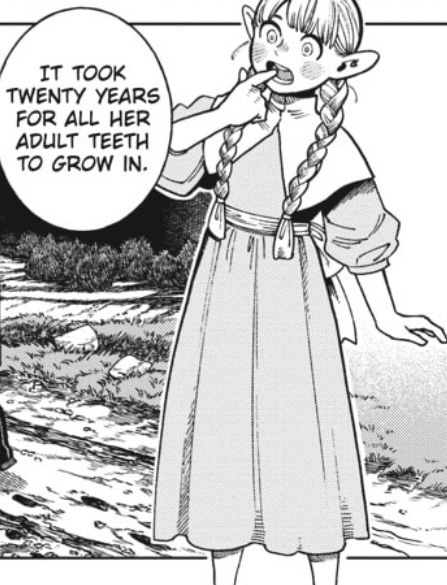
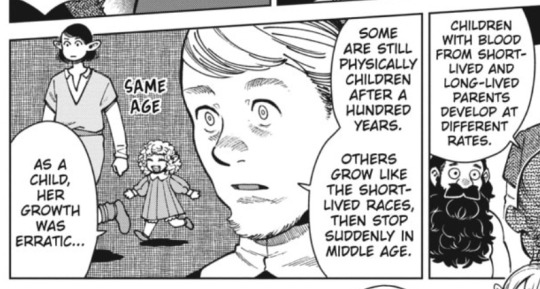
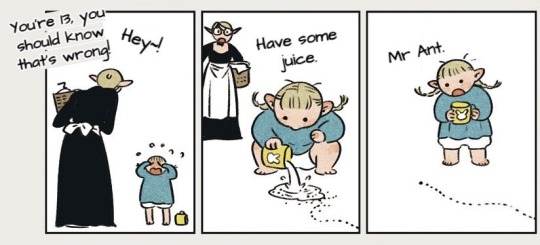
i’ve seen too many people arguing that marcille was already a full grown adult when she went to school at 35 despite literally all of the canon evidence indicating otherwise
#like trying to map fantasy race lifespans to exact equivalent human ages is pointless bc it simply does not work#so forget the numbers and start judging by how the story depicts the characters’ growth and maturity instead#dungeon meshi#delicious in dungeon#marcille donato#dungeon meshi marcille#dunmeshi spoilers#dungeon meshi spoilers#delicious in dungeon spoilers
38K notes
·
View notes
Text

Wait, which way do we go now?
#what does the map say?#far left#middle left#middle right#or far right#almost made this into a poll#but just add to the tags instead#my post#nature photography#nature#photography#portal#magical#fantasy#photo edit#this is edited
5K notes
·
View notes
Text



I’ve always thought the Niben River area of the Tamriel map looked like a Weird Little Guy. So I made him and I think I would die for him
#is he a bug??#a tortoise thing??#I don’t know and I don’t care to know#the elder scrolls#tes#tesblr#elder scrolls#elder scrolls fanart#tamriel#tamriel map#character creation#creature creation#creature concept#fantasy creature#creature design#character design#fantasy art#morrowind#oblivion#skyrim#digital art#digital sketch#tes fanart#oc#oc art#sketch#my art#mine
986 notes
·
View notes
Text

your life is mine, my death is yours
#art#my art#illustration#illustration artist#fanart#ff7#ffvii#final fantasy 7#final fantasy vii#cloud strife#sephiroth#sefikura#experimenting with gradient maps...#anyway '''quick''' doodle#not sure if i? like it LMAO
800 notes
·
View notes
Text
Rewatching the first few episodes of fhjy because i guess i have nothing better to do and the way you can see how kibblespilly was supposed to be a counter to riz is so fucking funny. Its all there from the very beginning- the attitude, the tactics, the way she interacts with the party and everything- this is supposed to be riz's counterpart to run against him for student body president and have a terrible battle of wits and barbs
But in a twist that is perhaps THE most befitting to her ideal story of running against the boy she chose to be her antagonist, the intrepid heroes just straight up not taking the bait resulting in her instead having to go toe to toe against her idealized perfect rival's aggressive near-flunkie unsubtle chaotic friend is SO FUNNY.
Like I know some people are disappointed we dont get the riz vs kipperlily presidential whatever, I know it doesnt make tons of sense in that specific narrative way. But the fucking hilarious meta that even this didnt go her way is so funny. Because instead of rogue sneaking and behind the shadows plays and spy vs spy shit, we have just outward schoolyard taunts and shit like kristen exploding and jumping over the school and the exact kind of play that baits kipperlily into rage every single time and its so fucking funny. Kristen runs naked through the school and does party stunts and is STILL BEATING HER. She even clearly constructed her party to mirror the bad kids perfectly and craft each of them their own nemesis/counterpart and for the most part it like kind of worked EXCEPT FOR HER.
It must drive her fucking crazy that her cute little plot of rogue vs rogue didnt pan out at fucking all despite ALL the signs pointing to that making the most sense. This was something she just couldnt predict, couldnt mastermind. She got up onto that metaphorical stage for a debate and instead was met with a clowning act. Its so funny. I love fantasy high. Nothing you could have done would have changed this, fourdogs. You never had any power at all.
#the idea of her fucking whiling away the hours making mind maps in some swanky study her parents bought her#thinking like yessss im a mastermind..... yesss riz will run against me for president because he needs the extracurriculars....#oohooo im so smart im so evil theyre never gonna see it coming#and then experiencing it all come crashing down as kristen declares shes running for president#diabolical#hilarious#im obsessed#dimension 20#brennan lee mulligan#d20#d20 fantasy high#fantasy high#kipperlilly copperkettle#fhjy#dimension 20 fhjy#d20 fhjy#fantasy high junior year#riz gukgak#kristen applebees#ally beardsley#brian murphy
3K notes
·
View notes
Text
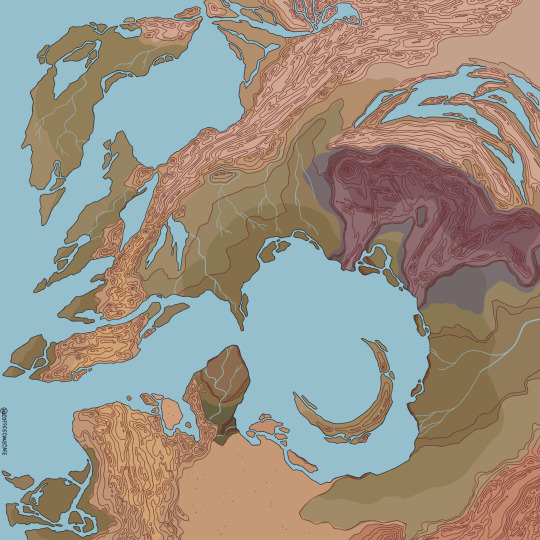
playing with maps! it has topography but no countries yet. dividing the earth into kingdoms is harder than justifying mountain ranges and weather patterns. kind of a work in progress
580 notes
·
View notes
Text
Full map of Exandria, 2024 update!
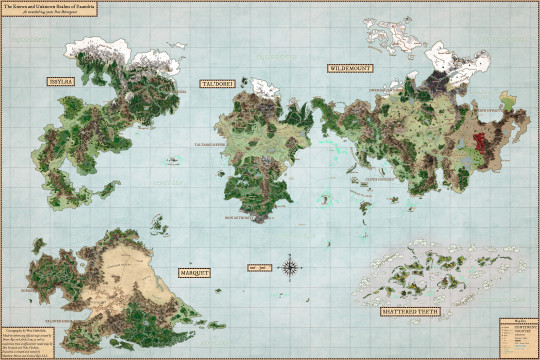
Map images and Wonderdraft file download [HERE]
Hi everyone! It's been about 4 years since my last map. In that time more of Exandria has revealed itself to us, and while it is still not a complete picture, we now have enough that I felt it was time to make an update.
The biggest change from my previous map is that I am no longer using the Elven Tower Cartography assets. This is because previously I installed them incorrectly, in a way that meant that people who downloaded the map file were unable to see the assets unless they installed it in the same weird way that I did. Rather than fixing this, I instead opted to use the default Wonderdraft assets, that way it can be viewed out of the box without having to download something else first!
As before, Tal'Dorei and Wildemount are the most accurate to official maps, and we also have an official map of at least one arrangement of the Shattered Teeth, which is re-created here. We have a portion of Marquet via the Oderan Wilds and Hellcatch Valley maps, but the rest, including all of Issylra is still mostly made up, based loosely on a very old and tiny map briefly shown on screen by Sam in episode 103 of Campaign 1! Naturally when any new maps come out, this map will (eventually) be updated to reflect them.
There are some locations that are new to this map as well, such as the Demithore Valley in Issylra from Campaign 3 and all the towns visited in The Re-Slayer's Take up to episode 10, these being Himblewood, Josgren's Hollow, Shoresight Isle, and the Hug Hive. Ta'Dorei has a few new towns, Mooren and Heldenfaire, which were mentioned in Tal'Dorei Campaign Setting Reborn, as well as a few unnamed village clusters, the Foramere and Vues'dal villages. For these and the Mornset Countryside I included some non-canonical paths connecting them to the main roadways. Also included in Mornset is Roch Mar, the village that Vox Moronica visited all the way back in Episode 12 of Campaign 1, before Critical Role even did separate numbering for one-shots and thus included this unrelated episode in the campaign. This town isn't officially confirmed to actually exist in Exandria, so consider it my headcanon and a paper town. Moving on to Wildemount, Vo Village got upgraded to proper town status, and I've also included Yardel from The Nine Eyes of Lucien, Ghostwall from The Tales of Exandria: The Bright Queen, and Galgarad from the Dark Star adventure on DnDBeyond!
I want to give a special thanks to Don Farland for his original fan map of Exandria, created all the way before the release of Explorer's Guide to Wildemount, upon which I originally based my map of the Shattered Teeth. Incidentally, I believe that this depiction of those islands was the basis upon which the official map by Andy Law is based upon. I would also like to thank Niko Vanhala for his fan-made maps of Marquet and Issylra, upon which I have loosely based my maps of those continents. And of course thank you to Andy Law and Deven Rue for the official cartography of Exandria!
#critial role#critical role fanart#fantasy cartography#fantasy map#exandria#tal'dorei#wildemount#issylra#marquet#shattered teeth
1K notes
·
View notes
Text
Dungeon Meshi World Map
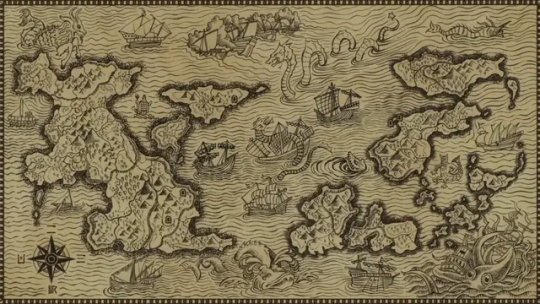
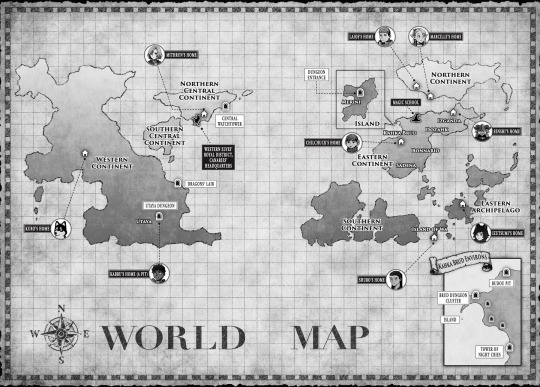
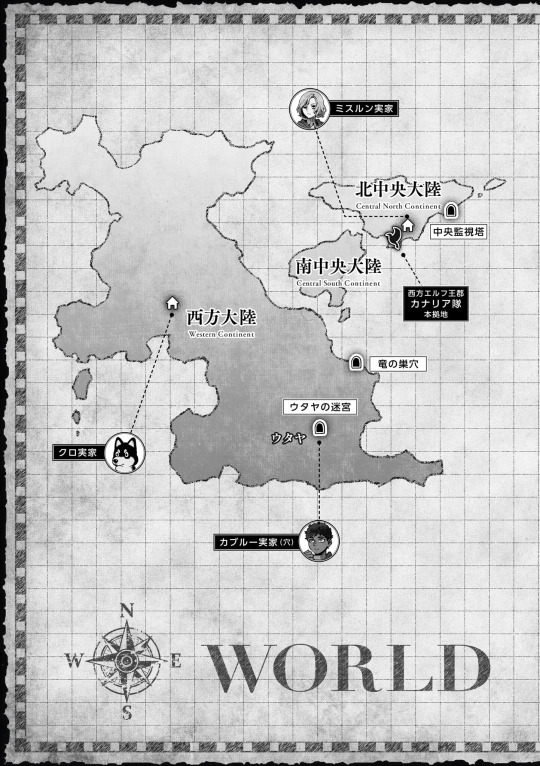
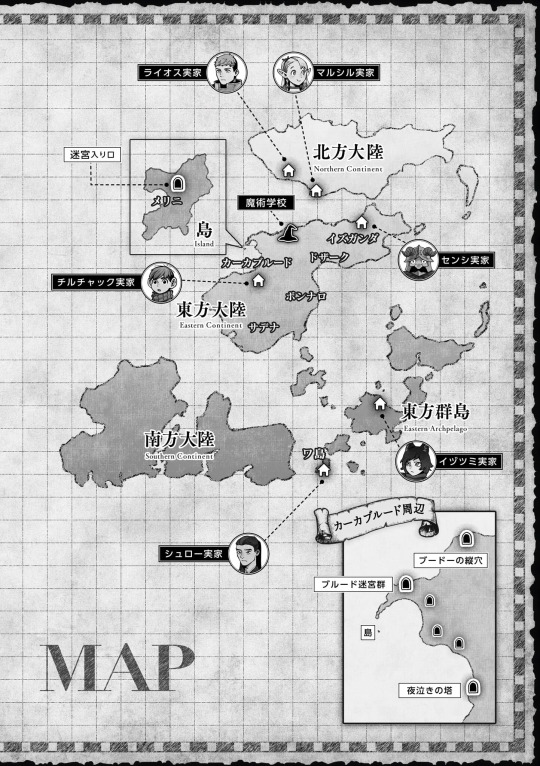
REGIONS (Descriptions taken from the Adventurer's Bible)
WESTERN CONTINENT
Description: Bears the most scars from the ancient war. It has many monsters and ruined dungeons, and although it's vast, there are surprisingly few habitable areas. Most of the inhabitants are sturdy, short-lived races and demihumans. Elven culture has had a strong influence here. Characters: Kabru and Kuro Places of Note: Utaya Dungeons of Note: The Utaya Dungeon, The Dragon's Lair
NORTHERN CENTRAL CONTINENT
Description: The continent that is home to the largest nation, ruled by the queen of the elves. The term "Western Elves" mostly indicates elves from this region. It's the safest area and life is easy here, but its shrinking population has dangerously weakened it. Characters: Mithrun (and the Canaries) Places of Note: Western Elves's Royal District, Canarie's Headquarters. Dungeons of Note: Central Watchtower
SOUTHERN CENTRAL CONTINENT
Description: The area with the second-largest elf nation. It has more inbound immigration than the Northern Central Continent and a rather disorganized atmosphere. While it's in an alliance with the Northern Central Continent, they really aren't on good terms. Characters: - Places of Note: - Dungeons of Note: -
EASTERN CONTINENT
Description: Home to the largest gnome nation. Once dwarfs and gnomes made up the majority of the inhabitants, but in recent years there has been an influx of short-lived races from the Northern Continent and Eastern Archipelago, and the population is growing rapidly. It's a melting pot where various cultures are jumbled together. Characters: Chilchuck Tims (Kahka Brud), Senshi (Izganda) Places of Note: Magic School, The Island/Melini, Kahka Brud, Izganda, Dozahk, Bonnario, Sadena Dungeons of Note: Island, Brud Dungeon Cluster, Budou Pit, Tower of Night Cries
NORTHERN CONTINENT
Description: A severely cold continent where over half of the land is covered in perpetual snow. The majority of the inhabitants are short-lived races, particularly tall-men, but the population isn't large to begin with. It has been strongly influenced by dwarf culture. Characters: Laios & Falin, Marcille Places of Note: - Dungeons of Note: -
EASTERN ARCHIPELAGO
Description: An area where short-lived races live. As a result of a pact, there has been no interference by long-lived races for a very long time. The effects of the ancient war are slight, and they have almost no trouble with monsters or dungeons, but there's constant strife among humans. Characters: (all from different Islands) Izutsumi, Shuro and his Retainers, Rinsha Fana (Not shown) Places of Note: Island of Wa Dungeons of Note: -
SOUTHERN CONTINENT
Description: Home to the largest dwarf city. Gnome and dwarf nations often build down rather than out, and the innermost layers are extraordinarily deep. War still erupts frequently, and there are never-ending disputes near the borders. Characters: - Places of Note: - Dungeons of Note: -
If you're interested I've found a post on pixiv with the map outlines and some more info (in japanese) (edit: translated here)
I'll make a post about the dungeon descriptions later (here) but here they are, there's a little more info about Kahka Brud dungeons on my last map post
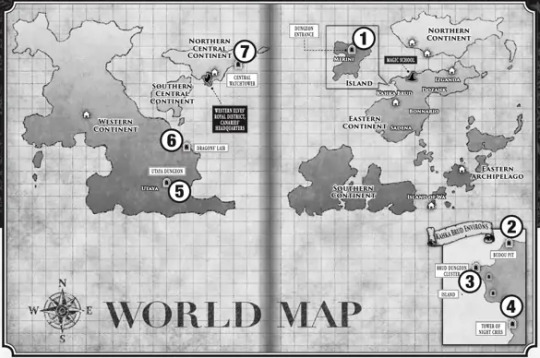
1 The Island, 2 Budou Pit, 3 The Brud Dungeon Cluster, 4 The tower of Night Cries 5 The Utaya Dungeon 6 The Dragon's Lair 7 The Central Watchtower
Map Outline
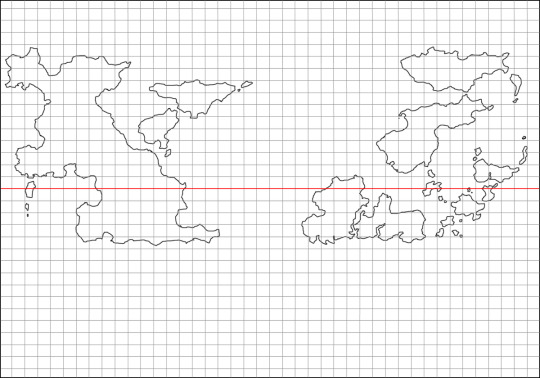
#dungeon meshi#dungeon meshi map#adventurers bible#maps#world map#Laios Touden#Marcille Donato#Senshi of Izganda#Chilchuck tims#Izutsumi#Toshiro Nakamoto#Kuro#Kabru of utaya#Utaya#The canaries#Mithrun#Edit: Shame on me I forgot to add one more map and a link to a pixiv post with the outlines#longpost#long post#worldbuilding#world building#fantasy map#fantasy world#for referencing
2K notes
·
View notes
Text
2025 Book Review #4 – Gardens of the Moon by Steven Erikson
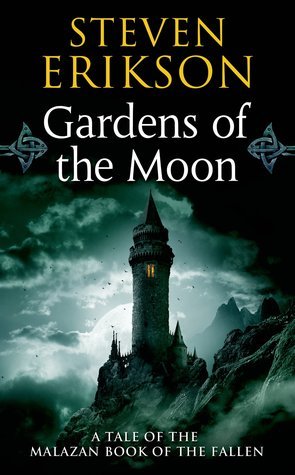
In the time between first hearing about Malazan and finally reading this, I have seen its reputation peak as The Only Fantasy Series anyone online recommended (long since dethroned by Sanderson), get submerged in the backlash, and finally just seem to fade from discourse entirely. In that time, I have been relentlessly peer-pressured and bullied (affectionate) into giving this ten-book saga a chance. And so, as a project for 2025, I will be endeavouring to get through it. Gardens, if it doesn’t live up to the hype (an impossible ask, really), is at least a very entertaining and engaging piece of sprawling epic fantasy to start it off.
Set in a sprawling, ancient fantasy world Gardens of the Moon is (to generalize and simplify) about the attempts of the Malzan Empire to conquer Darujhistan, last and greatest of the Free Cities, before the simmering discontent among its inner provinces and much-abused legions erupts into full scale rebellion. It is also about the various gods and immortals involving themselves in those attempts, most obviously the immortal (basically) elven sorcerer-lord Anomander Rake and his private war against the empire, but also including between at least two entirely unrelated sets of ascendant demigods and their schemes. The story is told through a whole myriad of different points of view, at least half of whom are fighting for the position of ‘main character’ in the narrative structure.
This is very much Map Fantasy, both literally (there are in fact maps and lexicons included in my copy) and figuratively – which is to say, in both tone and the tropes its drawing upon this is very much Epic High Fantasy in the Tolkeinesque tradition. It is, I’m told, actually based in some way on the author’s D&D campaigns – and if I hadn’t been told, I would have guessed. I cannot remember the last time I read a story where the setting and Lore so obviously preceded and is considered by the author to be as or more important than the particular narrative currently being told with it. Very nearly every single character, setting and concept that’s introduced feels like it’s being re-introduced, having already been the centre of a whole story in their own right in some other book. Which does an excellent job of making the world really feel like it has history, but does also just start to get exhausting at a certain point, and makes keeping track of the actual stakes more than a little difficult.
I want to say I came into this story blind, but that’s not really correct – I knew nothing at all about the story, but I’ve had a friend telling my little tidbits about the lore and metaphysics for years now. This was probably incredibly helpful for my reading experience – even compared to the rest of the genre, this is a story absolutely in love with Proper Nouns, even for fairly traditional fantasy concepts and tropes. If you just go with the flow and let them wash over you until the context clues start piling up I think you’ll probably do okay? But I can’t lie and say already knowing what e.g. a tiste, jaghut or warren was when I started didn’t help.
With that proviso – the series’ whole imposing reputation as impossible dense and indecipherable feels very overblown to me? Even if the exact mechanics of magic and godhood are pretty opaque, (almost) everyone’s motivations and desires are pretty clear and I was never at all confused by what was actually happening on-page or (in the character/motivation sense) why. Aside from the sheer number of POVs and nested subplots, in narrative terms it seems like fairly conventional, traditional (if higher powered and more magic-heavy) epic fantasy. Though saying that, I actually cannot remember the last time I actually read another example of the genre (would Witch King count?), so maybe my memory’s a bit warped here.
The book honestly surpassed my expectations going into it – or better to say perhaps that I had worries that proved to be unfounded. I was anxious going in that this would just be 700 pages of exposition and table-setting for the actual story that would unfold over the other nine books. Thankfully, while there was some of that (Tattersail’s whole arc, especially) you very much do get a complete narrative with its own stakes, climax, and conclusion here. If this was a standalone book, I’d be slightly annoyed at all the extraneous tangents, but it would hardly feel like I’d wasted my time. Which is more than you can say for some series these days.
But not to damn with faint praise - reading the book, I do absolutely get at least some of where the reputation comes from. Everything about the world does just oozes with care and attention, the plots cohere and occasionally compel, there are a number of really incredibly memorable set-pieces, and I actually like a solid fraction of the POVs. It’s probably the best execution of epic fantasy I can remember reading.
The ensemble cast is I feel either the greatest strength or most fatal flaw of the book as a reading experience. I always love the cast-of-thousands feel, but when taken to this level I’m sure a lot of people find it alienating and confusing. Admittedly I probably loved it more than usual here because some of the characters most heavily signposted and weighed down with narrative significance as The Protagonists were also just by far the least interesting or compelling parts of the book (I’m sorry but I simply do not care about Whiskeyjack even slightly, even leaving aside how he spent the entire book making things strictly worse and breaking things for unclear benefit to anyone).
The book’s character writing is unfortunately uneven, at least as far as drives and motivations though. Sometimes it’s interesting and subtle, somethings it sensible but a bit baldly stated and tell-don’t-show, and sometimes it feels painfully obvious when revelations and changes of heart occur on the timetable of the plot rather than the reverse (Captain Paran’s sudden-but-total disillusionment with the empire and willingness to risk life and limb for vengeance on his former boss and join an armed rebellion felt especially thinly justified, for such a major character).
Thematically the book is very interested in tyranny and subjugation, though I’m not entirely sure it had anything much to say about them. The portrayal of the Malazan Empire as this horrible world-eating engine of domination is rather significantly undercut by half of the sympathetic POVs we have being agents or officers of it driven to defection/rebellion by a nefarious usurper trying to purge the old guard who made the empire great (I don’t think a single characters says a positive word about the Empress in the entire book? And her only two loyal agents are positioned as the most villainous actual characters in the whole book). It being so prominent gives the history of the setting an appealingly tragic cast, at least.
Anyway yeah, I have quibbles (far too many words spent on characters making vague pronouncements of undescribed plans, some characters/elements introduced in the climax without real foreshadowing or buildup, for a book with this many POVs it comes embarrassingly close to failing the Bechdel Test, etc) but all in all this quite a really fun read. Looking forward to starting the next one next month.
38 notes
·
View notes
Text




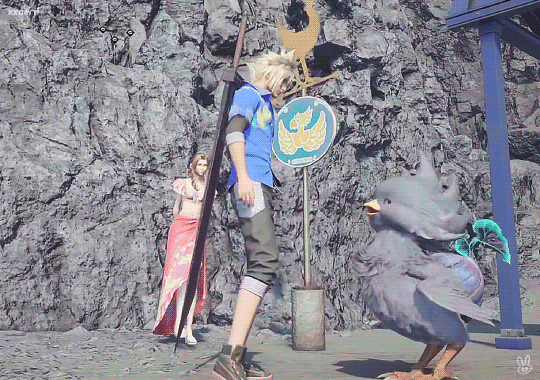

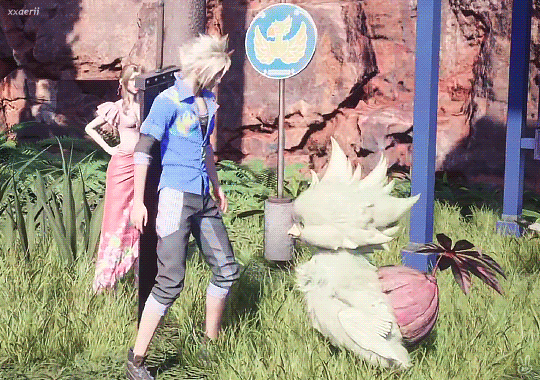
FINAL FANTASY VII REBIRTH (2024) ↳ Cloud + baby chocobos ⋋(•⌔•)⋌
#final fantasy vii#ffvii#cloud strife#chocobo#aerith gainsborough#cait sith#ffgraphics#gamingedit#gaming#*#ff7r#final fantasy vii rebirth#final fantasy#ff7#final fantasy 7#videogameedit#dailygaming#ffedit#ff7 rebirth#ff7 remake#this is the only time im letting cloud wear that chocobo themed outfit loooooljkjk fsdfhjksdhjkds haha pls who designed that#did i miss any other baby chocobo design? ofc i havent unlocked the whole map yetttt i hope theres some rare breed somewhere :)))
1K notes
·
View notes
Text

Journey to our Sunny Peninsula! 🌞🌿
0 notes
Text
Brennan Lee Mulligan knew from the moment he said that the vulture made eye contact with Kristen that there would be no force on earth strong enough to stop Ally Beardsley from heckling the vulture… Hell of an episode
#dimension 20#fantasy high#fantasy high junior year#dimension 20 spoilers#fhjy#kristen applebees#fantasy high junior year spoilers#fhjy spoilers#vulture dimension made me laugh so hard I wept#I need to go back and zoom in on some battle map shots I think I saw a ficus mini with the bear?#hilarious
2K notes
·
View notes
Text
"this book was confusing"
have you considered thinking harder, or rereading it with a corkboard, string and a wall of annotated maps?
#fantasy#read the map#tbr#tor books#bookish#bookworm#bookblr#book#books and reading#think harder#team rereading#i will finish this book even if i cant pronounce anything#thinking so much steam is coming out my ears
348 notes
·
View notes